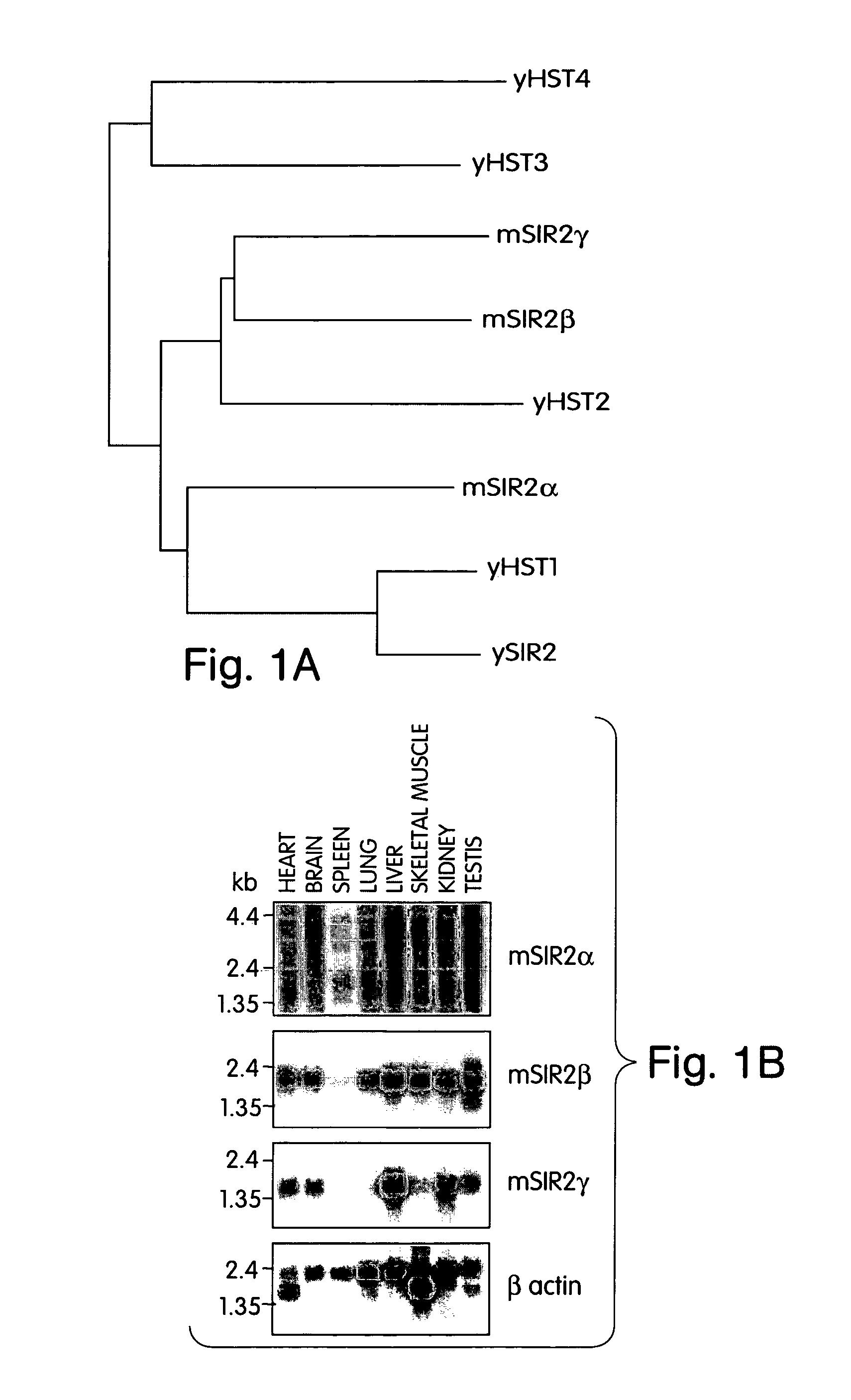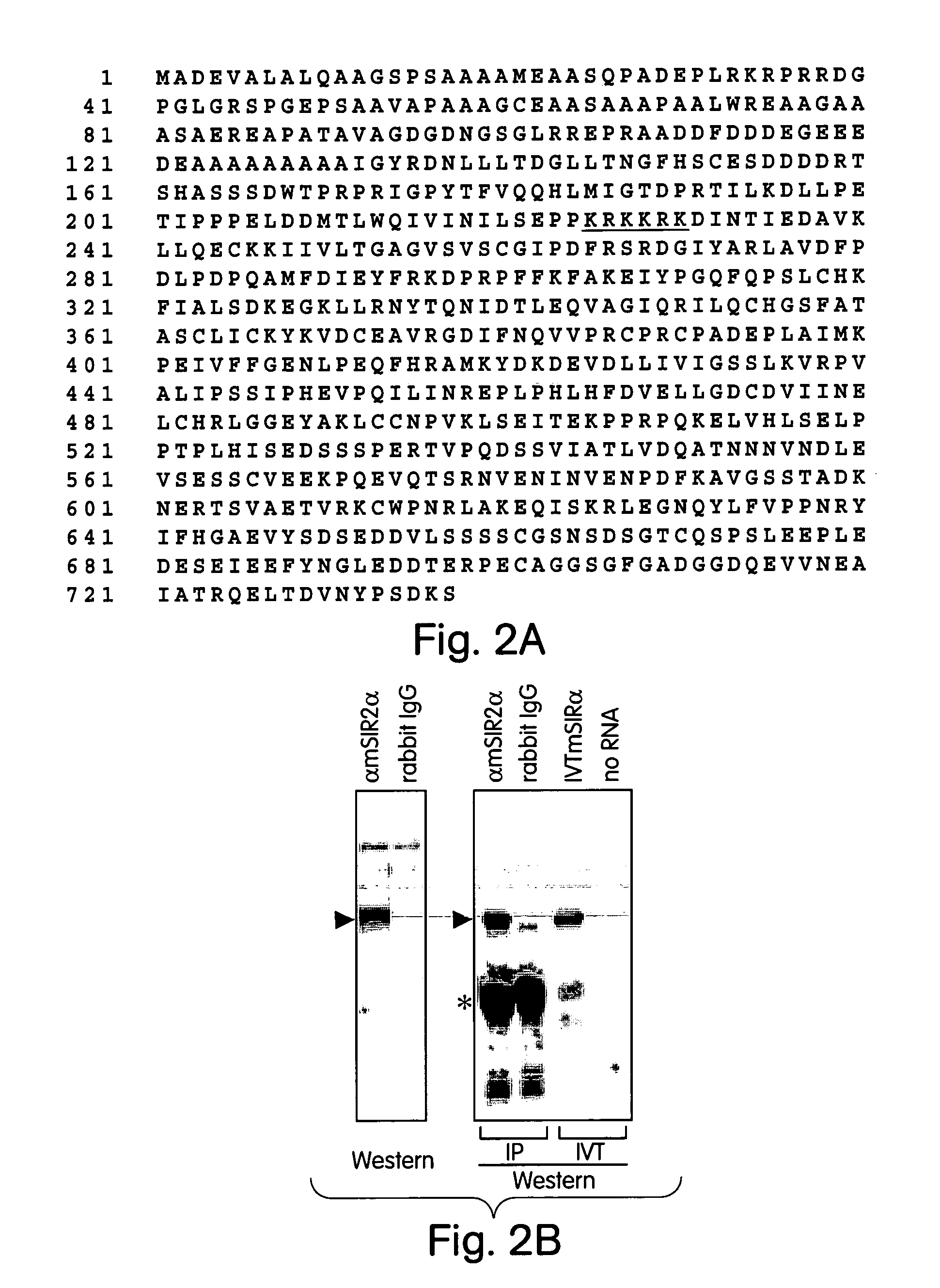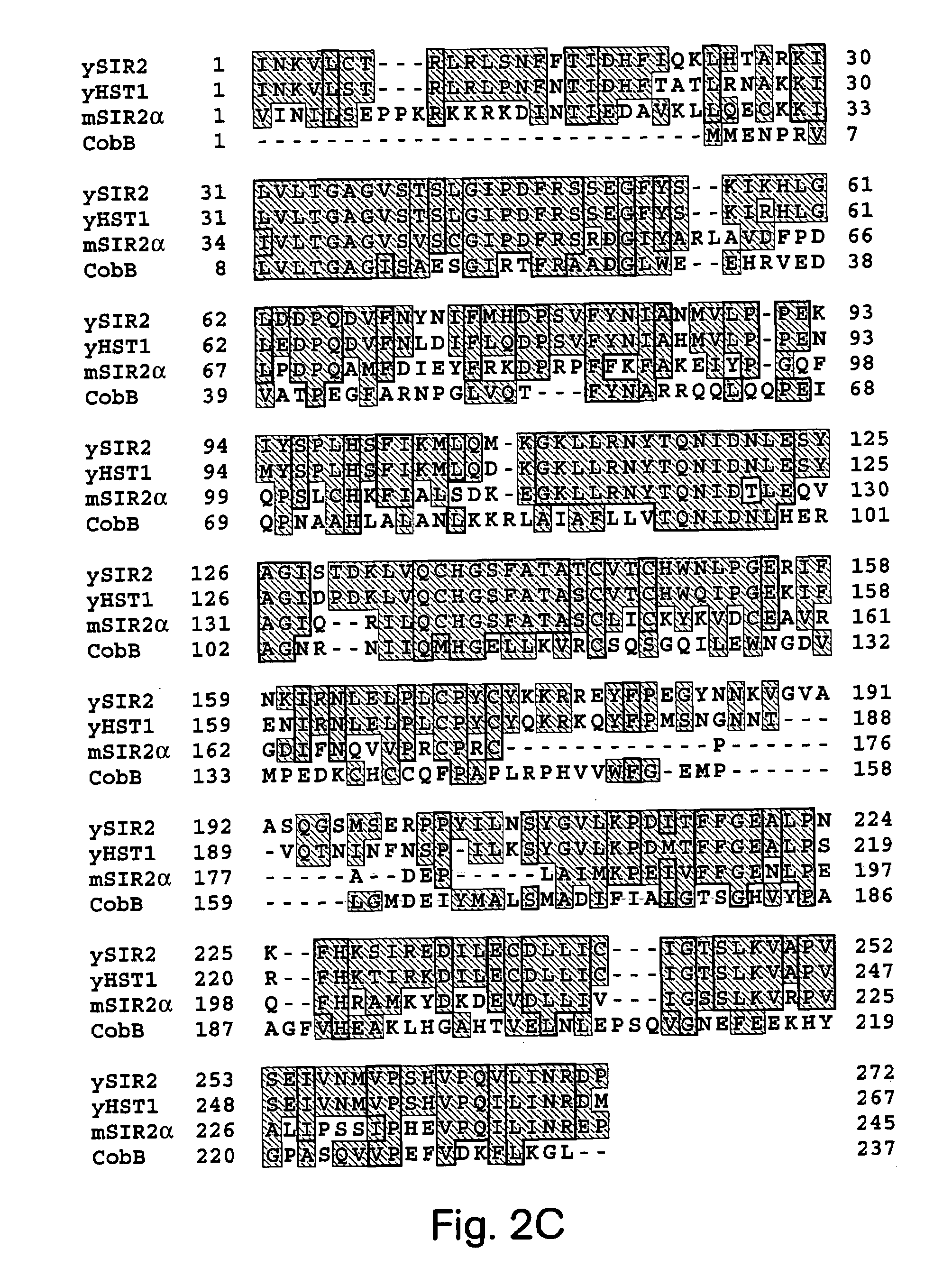Methods for identifying agents which alter histone protein acetylation
a technology of histone protein and acetylation, which is applied in the field of methods for identifying agents which alter histone protein acetylation, can solve the problems of increasing the likelihood of death, and reducing so as to and increase the life span of the cell
- Summary
- Abstract
- Description
- Claims
- Application Information
AI Technical Summary
Benefits of technology
Problems solved by technology
Method used
Image
Examples
Embodiment Construction
[0089]The invention relates to the discovery that Sir2 proteins, which play a part in the life span control mechanisms in eukaryotic cells, alter the NAD-dependent acetylation status of histone proteins and mono-ADP-ribosylate nuclear proteins. In particular, the invention pertains to the discovery that Sir2 (e.g., murine Sir2α) alters the NAD-dependent acetylation status (e.g., removes and / or adds an acetyl group) of histone proteins (e.g., histone proteins H2B, H2A, H3 and / or H4) and mono-ADP-ribosylates histone proteins. As a result of this discovery, methods for identifying agents (e.g., agonists) which alter the NAD-dependent acetylation status of nuclear proteins, such as histone proteins, and / or their mono-ADP-ribosylation are available to provide methods and compositions to alter (e.g., slow) aging and alter (e.g., increase) life span of cells and organisms.
[0090]The present invention relates to a method of altering the NAD-dependent acetylation status of at least one amino ...
PUM
| Property | Measurement | Unit |
|---|---|---|
| pH | aaaaa | aaaaa |
| pH | aaaaa | aaaaa |
| temperature | aaaaa | aaaaa |
Abstract
Description
Claims
Application Information
 Login to View More
Login to View More - R&D
- Intellectual Property
- Life Sciences
- Materials
- Tech Scout
- Unparalleled Data Quality
- Higher Quality Content
- 60% Fewer Hallucinations
Browse by: Latest US Patents, China's latest patents, Technical Efficacy Thesaurus, Application Domain, Technology Topic, Popular Technical Reports.
© 2025 PatSnap. All rights reserved.Legal|Privacy policy|Modern Slavery Act Transparency Statement|Sitemap|About US| Contact US: help@patsnap.com



